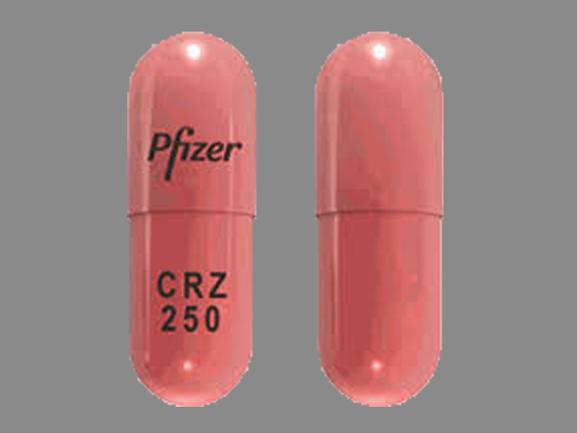Crizotinib Interactions
There are 821 drugs known to interact with crizotinib, along with 7 disease interactions, and 1 alcohol/food interaction. Of the total drug interactions, 320 are major, 482 are moderate, and 19 are minor.
- View all 821 medications that may interact with crizotinib
- View crizotinib alcohol/food interactions (1)
- View crizotinib disease interactions (7)
Most frequently checked interactions
View interaction reports for crizotinib and the medicines listed below.
- Abraxane (paclitaxel protein-bound)
- Activated Charcoal (charcoal)
- Actos (pioglitazone)
- Adriamycin (doxorubicin)
- Advair Diskus (fluticasone / salmeterol)
- Aleve (naproxen)
- Altace (ramipril)
- Ambien (zolpidem)
- Aredia (pamidronate)
- Arixtra 5 mg/dose (fondaparinux)
- Aspir 81 (aspirin)
- Aspirin Low Strength (aspirin)
- Ativan (lorazepam)
- Augmentin (amoxicillin / clavulanate)
- Azithromycin Dose Pack (azithromycin)
- Benadryl (diphenhydramine)
- Benicar (olmesartan)
- Co-trimoxazole (sulfamethoxazole / trimethoprim)
- Coenzyme Q10 (ubiquinone)
- Copper (copper gluconate)
- Crestor (rosuvastatin)
- Glycerol (glycerin)
- Heparin Sodium (heparin)
- Metoprolol Succinate ER (metoprolol)
- Nexium (esomeprazole)
- Quercetin (bioflavonoids)
- Tylenol (acetaminophen)
- Vitamin D3 (cholecalciferol)
- Zofran (ondansetron)
- Zoloft (sertraline)
Crizotinib alcohol/food interactions
There is 1 alcohol/food interaction with crizotinib.
Crizotinib disease interactions
There are 7 disease interactions with crizotinib which include:
- bradycardia
- gastrointestinal perforation
- hepatic impairment
- ILD/pneumonitis
- QT prolongation
- renal impairment
- visual loss
More about crizotinib
- crizotinib consumer information
- Compare alternatives
- Reviews (8)
- Side effects
- Dosage information
- During pregnancy
- Drug class: multikinase inhibitors
- Breastfeeding
- En español
Related treatment guides
Drug Interaction Classification
| Highly clinically significant. Avoid combinations; the risk of the interaction outweighs the benefit. | |
| Moderately clinically significant. Usually avoid combinations; use it only under special circumstances. | |
| Minimally clinically significant. Minimize risk; assess risk and consider an alternative drug, take steps to circumvent the interaction risk and/or institute a monitoring plan. | |
| No interaction information available. |
See also:
Further information
Always consult your healthcare provider to ensure the information displayed on this page applies to your personal circumstances.


